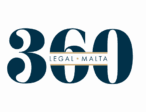The two legal ordinances being the Medical and Kindred Professions Ordinance and the Dangerous Drug Ordinance were recently amended to widen the meaning of drugs. This makes it easier for the prosecution to conduct their work properly.
A new definition is given to the term ‘drug’ mainly being derived from the 1961 United Nations Single Convention on Narcotic Drugs as amended by the 1972 Protocol, or by the 1971 United Nations Convention on Psychotropic Substances. Including any substances listed in the annex to the Council Framework 004/757/JHA.
Before this amendment, drug offences were limited to the existing drugs and, therefore new psychoactive drugs were not catered for. In order to offer a remedy for this, through this amendment they would still classify as an offence even though the type of drug is not listed specifically in any of the conventions. This provides better tools for the police enforcement to conduct their work more easily.
A psychoactive substance is defined as; a substance in pure form or in preparation, that is not covered by the conventions previously mentioned. Nonetheless, this substance has to “pose health or social risks” similar to substances mentioned in the convention. The latter phrase is of essence for our prosecutors as it widens the scope of this article, however, simultaneously poses a greater burden of proof that the prosecutors have to fulfill. The law also provides a definition for ‘preparation’ which is considered to be;
‘a mixture containing one or more new psychoactive substances’.
Finally, both ordinances have included a provision specifying that all necessary actions required for the implementation of the Council Framework Decision 2004/757/JHA need to be implemented by a maximum of 6 months.
This shall not be construed to be as advice but shall merely serve as a brief description of the meaning of a drug. If you would like to get to know more about this please do not hesitate to contact us on [email protected].

